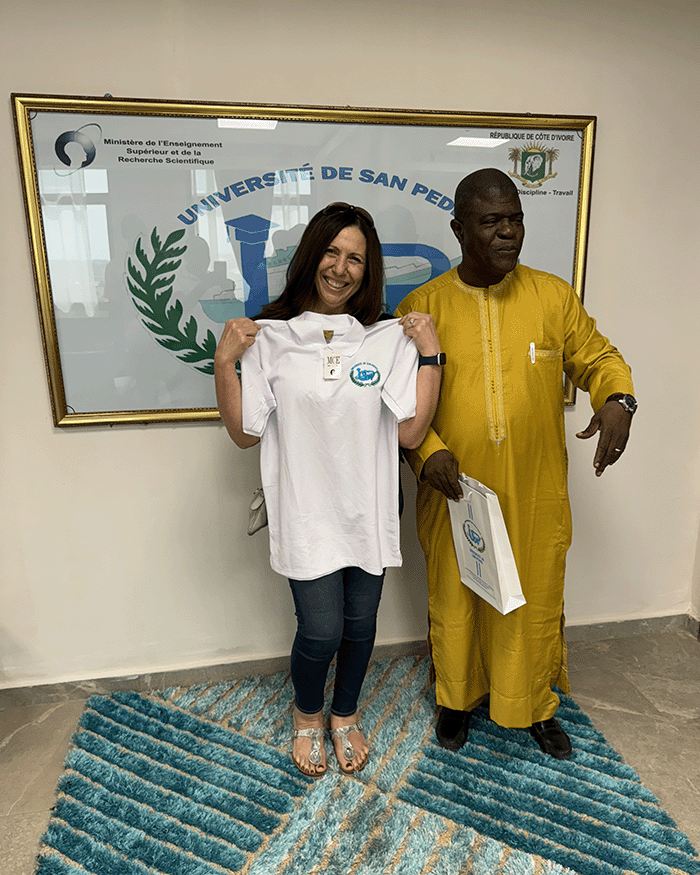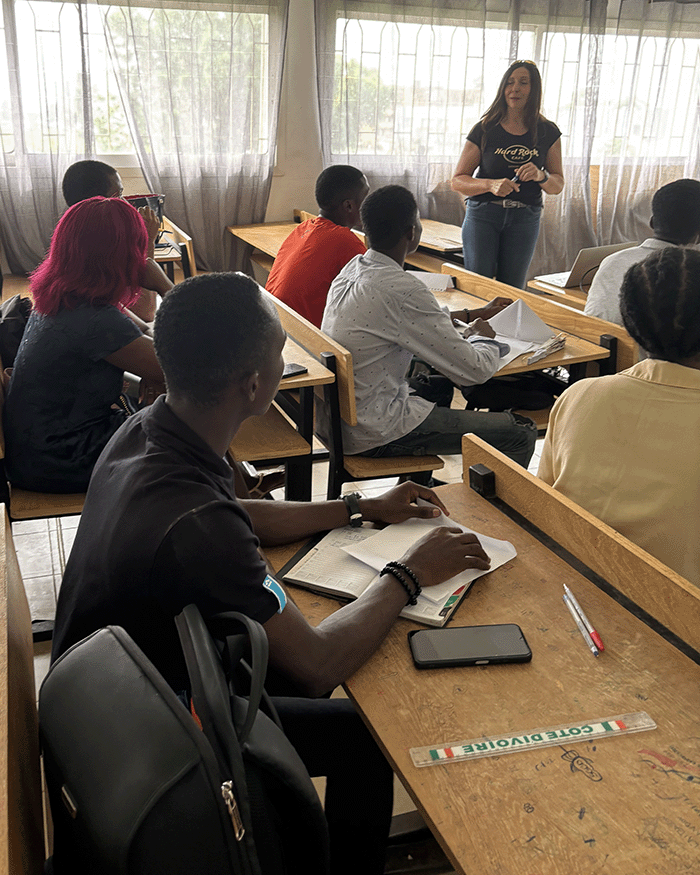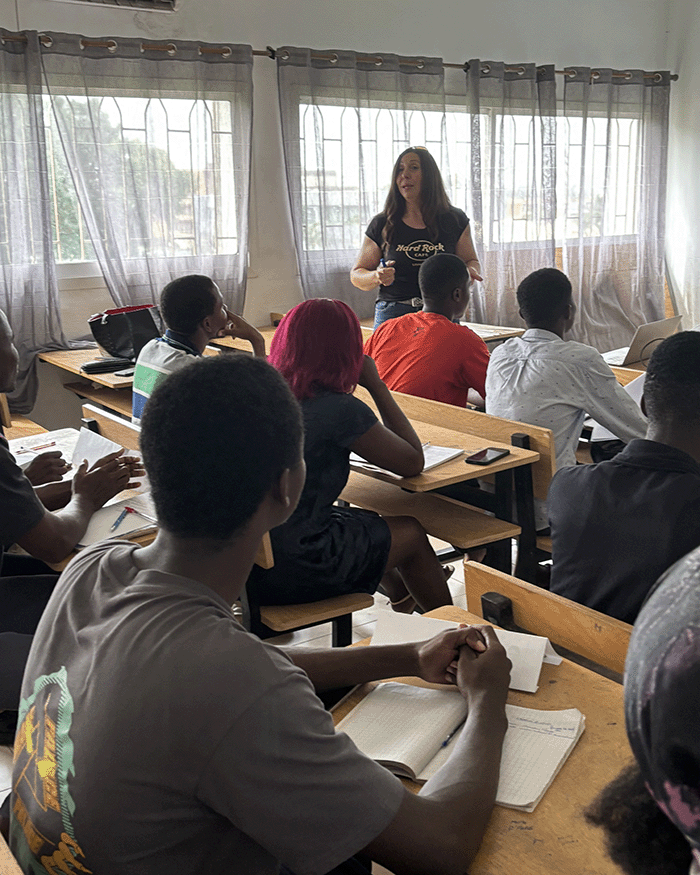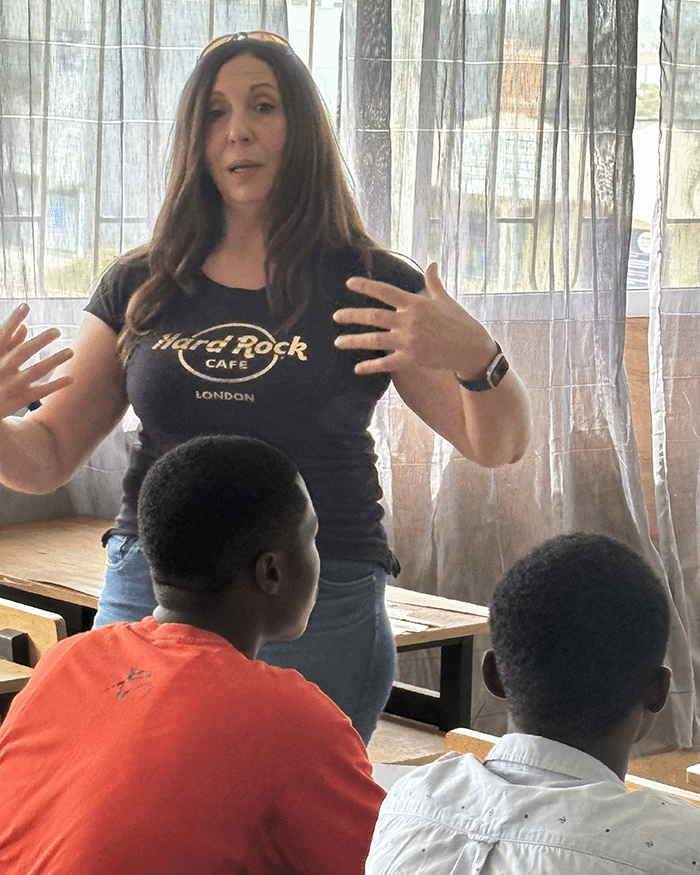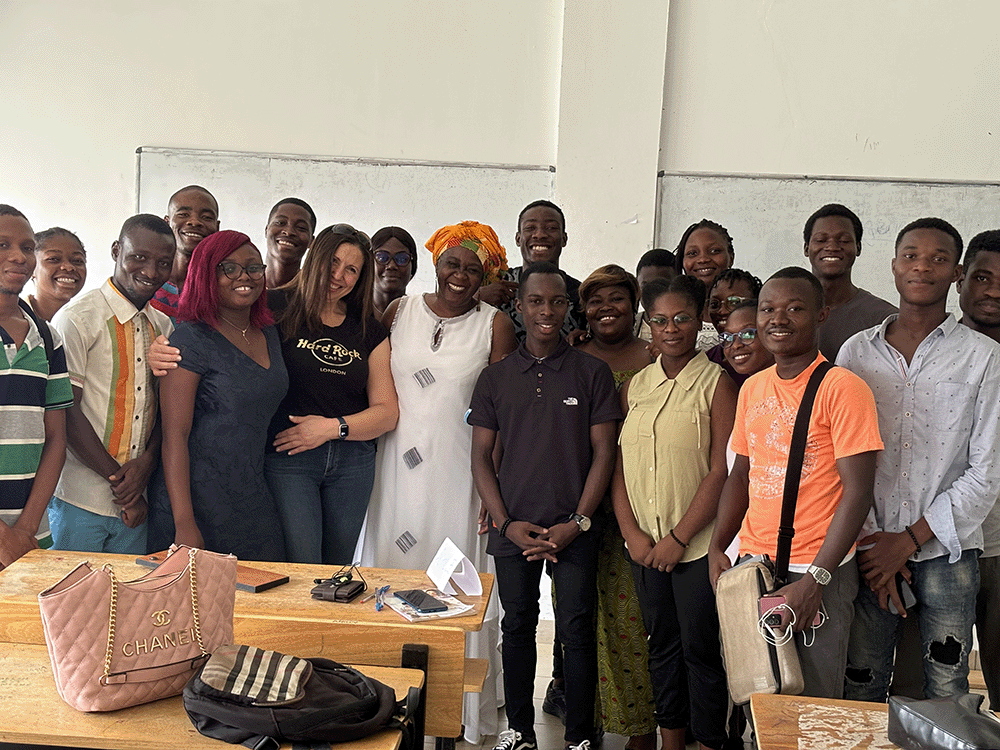
Faculty Global Engagement
Jimia Boutouba receives a Visiting Research Scholar invitation from the University of Houphouët-Boigny in Abidjan, Ivory Coast (December 2023) to pursue research on her 2023-2024 CAH project. The following written interview provides an informative update on that project:
How did you become interested in the CAH project you are working on this year?
So far, my scholarly interests have focused on the intertwined histories of North Africa and France in colonial and postcolonial times. But I wished to expand my research by investigating trans-imperial processes that connected France, Africa and Asia, and their legacies in the postcolonial era. In exploring the complex and hidden stories that emerged at the intersection of Asian, African and French imperial histories, I hope to shed a new light on the nexus of racial and sexual politics at the heart of French imperialism and give visibility to minoritized groups whose voices and stories are seldom considered as legitimate historical records.
What kind of an impact do you hope your project will have–whether on your field, the community, our campus, etc.?
My project represents new forays into the history of French imperialism, and provides an innovative approach to understanding French imperialist policies and war campaigns by drawing on rare archival materials, and oral testimonies from unknown and/or previously unheard minoritized perspectives: those of Black-Asian children born during the war of Indochina (1946-1954), and accounts by North-African sex-workers who were brought to Indochina on a government-approved program of mobile prostitution to “service” combat and support soldiers overseas.
Examining French colonial history through these trans-imperial trajectories and perspectives represents a major departure from previous scholarly studies that have mostly focused on binary accounts across the colonial divide (North/South; West/Orient; colonizer/colonized), thus neglecting the histories, experiences, and narratives of other minoritized trans-imperial groups. My project will center the voices, perspectives, and historical agency of these subordinated groups to challenge historical erasure.
Tell us about a transformative or eye-opening experience in your research, whether for this project or one in the past?
Last fall, I spent hours and days opening old boxes and leafing through dusty military files in the French Military Archives in the Château of Vincennes. As I was trying to piece together fragments of these black soldiers’ stories and trajectories, I stumbled across curious documents that left me astonished, sometimes horrified; they offered a rare glimpse into the harrowing conditions that black soldiers had to face in Vietnam, all the while trying to balance love and danger, affection and prejudice within shattering calamities of war.
Another impactful outcome of this new research is the Visiting Scholar invitation I received from the University of Houphouët-Boigny in Abidjan to further investigate the history of the African soldiers who fought in the 1st Vietnam War and their Afro-Asian descendants. I met with members of the Métis Association, the President of the War Veterans Association, and many other people who were all eager to help. I was particularly moved by the stories I heard from métis children and the long-lasting traumas that this colonial history has had on their families.
